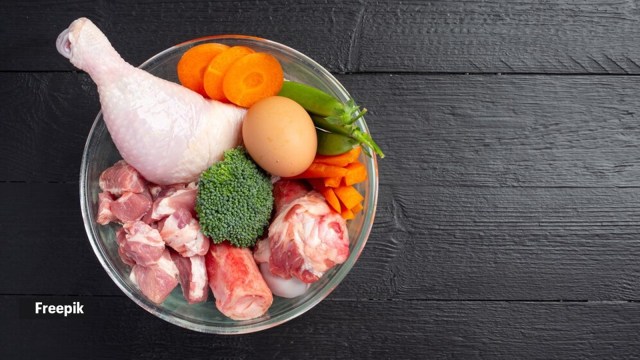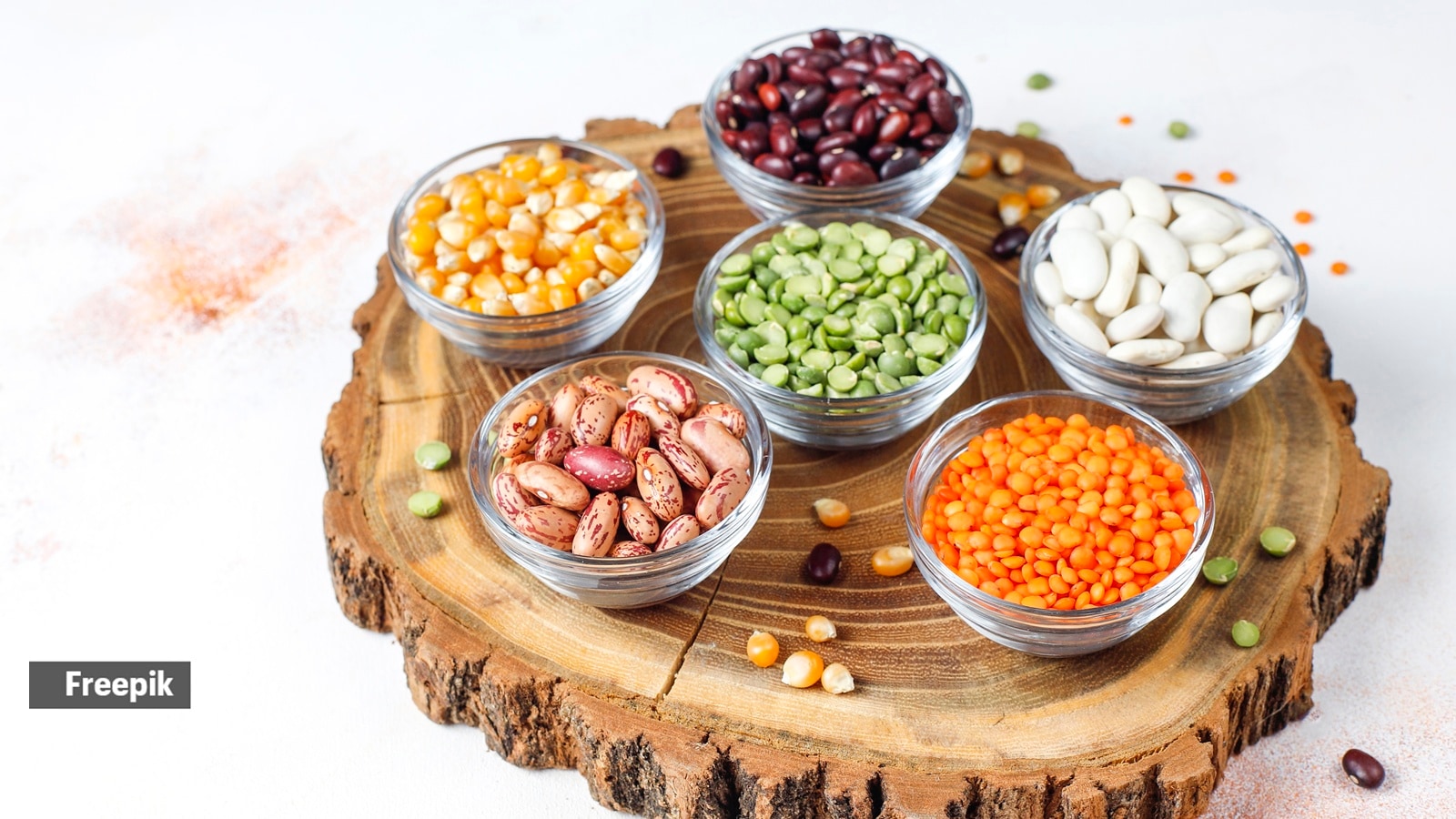📣 For more lifestyle news, click here to join our WhatsApp Channel and also follow us on Instagram
How much protein can your body actually absorb in one go?
Strategic meal planning can help you distribute your protein intake evenly throughout the day. Instead of loading up on proteins during one meal, consider incorporating protein-rich options into each meal and snack.
 How much protein gets absorbed in the body? (Source: Freepik)
How much protein gets absorbed in the body? (Source: Freepik)Protein is one of the most essential building blocks of health. According to Dr Shuchin Bajaj, founder director, Ujala Cygnus Group of Hospitals, protein supports muscle growth, repair, and maintenance, aids in weight management by promoting satiety, and contributes to enzyme and hormone production. Achieving a well-rounded protein intake involves diversifying your protein sources.
“While animal products like lean meats, poultry, and fish are excellent protein providers, plant-based sources such as beans, lentils, tofu, and quinoa can be equally effective,” he said. Including a variety of protein-rich foods ensures you receive a spectrum of essential amino acids crucial for bodily functions.
How much protein can your body actually absorb in one go?
Dr. Dipak Bhangale Consultant Gastroenterology, Hepatology, Interventional Endoscopy, Liver Transplantation, Kokilaben Dhirubhai Ambani Hospital, Navi Mumbai told indianexpress.com that the body can “absorb” protein at once, but the real issue isn’t digestion. Our gut easily handles large amino-acid loads, but how much protein meaningfully supports muscle growth before returns fade.
“Research suggests about 0.3–0.4 g/kg per meal (roughly 20–40 g for most adults) maximizes muscle protein synthesis, spread across 3–4 meals to reach 1.6 g/kg/day,” he said. Larger doses aren’t wasted. They extend the anabolic response or are used for repair and energy,” he explained.
 Including a variety of protein-rich foods ensures you receive a spectrum of essential amino acids crucial for bodily functions. (Source: Freepik)
Including a variety of protein-rich foods ensures you receive a spectrum of essential amino acids crucial for bodily functions. (Source: Freepik)
What is the best way of maximising protein absorption in the body? Dr Bhangale suggested distributing intake evenly through the day, choosing high-quality proteins (milk, eggs, fish, lean meats, or complementary plant sources), and ensuring each meal supplies ~2.5–3 g leucine, a key amino acid that triggers muscle building. Combine this with resistance exercise, proper recovery, and spaced meals rather than constant snacking to “re-sensitize” the system.
Common mistakes to avoid that hinder absorption
According to Dr Bhangale, common mistakes include eating most protein at dinner, relying on low-quality plant sources without mixing, under-dosing older adults, or skipping strength training. Patients with long fasts, digestive disorders, or chronic illness need tailored strategies.
“In short, it’s not that extra protein is unabsorbed. Beyond the optimal dose, the body simply uses it differently. Balanced distribution and training, not mega doses, make protein truly effective,” he said.
Strategic meal planning can help you distribute your protein intake evenly throughout the day. Instead of loading up on proteins during one meal, consider incorporating protein-rich options into each meal and snack. This approach aids in better digestion and utilisation of amino acids by the body.
While protein is essential, excessive intake may strain kidneys and lead to nutrient imbalances, Dr Bajaj added. “A balanced approach is key; excessive supplementation may have adverse effects. Aim for a well-rounded diet, which does not exceed 2.2 grams of protein per kilogram of body weight,” he added.
DISCLAIMER: This article is based on information from the public domain and/or the experts we spoke to. Always consult your health practitioner before starting any routine.
📣 For more lifestyle news, click here to join our WhatsApp Channel and also follow us on Instagram





- 01
- 02
- 03
- 04
- 05






















